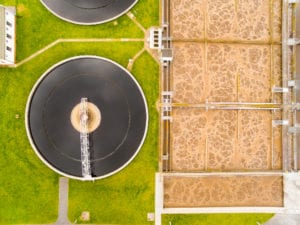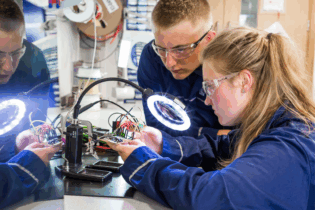The South African National Energy Development Institute (SANEDI) and the University of Johannesburg (UJ) have signed an Memorandum of Agreement (MoA) with an objective to assess the performance of SANEDI’s Micro Anaerobic Biogas Digester programme as well as define the optimal niche digester market with the potential for localisation options and commercial viability of the technology.
To accelerate these efforts, SANEDI and UJ have appointed the UJ Process, Energy and Environmental Technology Station (UJ-PEETS) to evaluate SANEDI’s activities during the last five years as well as develop a feasibility report that will comprise an approach going forward. The duration of the MoA is one year with implementation of results of this work being over the next 5 years under the overarching MoU. Based on the outcome of the above, UJ-PEETS will implement a sectoral development plan that will include capacity development through awareness, education, and process development to aid in the further development of Micro Anaerobic Biogas Digester industry in the country. The objective of the study is to enable SANEDI to meet its mandate in supporting the Government to attain and enhance the objects of IRP 2019, national skills development and job creation initiatives. Through the MoA, UJ PEETS also aim to provide insights to improve the biogas industry and outline the potential role and competitiveness of SMEs through the application of specialised knowledge, technology innovation and facilitation of interaction between industry and academia. “The country’s Micro Anaerobic Biogas Digester industry has the potential to strengthen the country’s renewable energy efforts with an emphasis on the use of biogas as an alternative energy resource in smaller communities,” says Mr David Mahuma – General Manager Working For Energy. “At SANEDI we also recognise that the technology can unlock the waste to energy potential of the country not only for small scale applications, but also for the large scale that includes the greater energy industry such as thermal fuels, electricity generation and transportation.”“We look forward to embarking on this journey with the University of Johannesburg,” says Mr Barry Bredenkamp – SANEDI Spokesperson.
SANEDI has a desire to develop micro-scale anaerobic digestion treatment process for purposes of using local, inexpensive, durable and easy-to manage treatment option for rural and urban bio-waste. Micro Anaerobic digestion involves the production of biogas, but on a small scale within farms or small communities. The micro -scale digestion production units are below 50m3 and used mainly for thermal applications. Some small-scale agricultural units have gas generation capacity to power small scale electricity generation capacity between 30 and 100kW. In SA, SANEDI has in the last eight years – as part of the Working for Energy (WfE) Programme – installed over 100 Micro Anaerobic Digesters at community development facilities, schools, Early Childhood Development Centres (ECDC), schools, colleges of agriculture, universities and individual households in the Western Cape, Eastern Cape, Limpopo, North West, Gauteng and KwaZulu-Natal (KZN) provinces. Through the SANEDI -UJ MoA, UJ-PEETS will:- Review the activity and impact of SANEDI in the Micro Anaerobic Biogas Digester space in the last five years;
- Assess the operational performance of the installed digesters;
- Identify root cause problems and operational gaps of the installed digesters, evaluating their impact and recording lessons learned;
- Plot an approach over the next five years to develop a commercially viable segment of the Micro Anaerobic Biogas Digester market;
- Host action dialogue and multi-stakeholder engagement to inform on the develop and rollout of a sectoral plan; and
- Finally compile a feasibility study report with recommendation for widespread deployment of Micro Anaerobic Biogas Digesters in SA.







